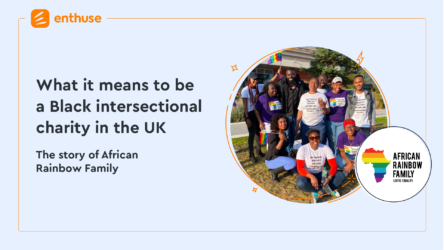
Earlier this year, the House of Lords published their ‘Stronger charities for a stronger society’ report, in which they adopted my recommendation that small charities should have a simple website or social media page and should be actively seeking digital skills for their board.
This advice was recently challenged by the Chief Executive of the Small Charities Coalition, who said:
“What they are advising small charities to do is to get a website and get on social media, but that’s what we should have been advising small charities to do 10 years ago.
“For me, digital is about embracing solutions to challenges we are facing. So it absolutely starts with identifying those problems. It is about thinking about the challenges that we are facing collectively through digital technology.”
I thought I should write a reply.
Firstly, small charities lack digital skills. 52% of small charities lack Basic Digital Skills compared to 41% of small businesses, according to the Lloyds Bank UK Business Digital Index 2017. Furthermore, 81% of charities are not investing any of their budget in digital skills. This is compounded by the fact that charity’s trustee boards lack in diversity, with the average age of a trustee being 57 years old.
This is why during the evidence session in the Lords I said:
“I would like to see that every new charity has a technology trustee or a digital trustee, much in the same way that the majority of them have a treasurer… That would do several things. It would bring a focus to digital. It would create a role to which younger people would be drawn, and younger people would lean towards trusteeship more. That could be quite a simple way of attracting more of these skills, because there are a lot of digitally savvy people out there and, if the path into charity was clear and open, we would see many more such people taking leadership roles.”
Secondly, small charities have been slow to adopt digital resources. In last year’s Lloyds Bank UK Business Digital Index, it was found that only 53% of charities receive donations online and just 57% have a website, although this is improving. This year, the same report showed that only 45% of charities are using social media. Furthermore, it showed that those that are using social media are 51% more likely to increase their donations.
This is why during the evidence session in the Lords I also said:
“We have seen examples of charities increase their overall giving from donors by up to 600%, purely through adopting digital fundraising methods, the basic and essential fundraising methods being a mobile-optimised website, an embedded payment system within their site enabling them to accept online credit and debit card payments, direct debits and various methods such as those. Digital can play a huge part in helping charities to be more sustainable, to raise more income from their local communities, but also in service delivery.
The fact is that charities are suffering because they don’t have the digital skills they need and are not using the most basic digital tools available to help them. This is one of the biggest challenges facing small charities, and to say that the Lords advice is ‘out of date’ is slightly missing the point.
It is easy to criticise digital advice that appears simplistic as being outdated, but we need to accept that the evidence tells us that smaller charities still have a lot to gain by adopting the most basic digital tools, such as websites, social media and online payments. The fact is that for the most part the solutions have existed for over a decade now, but many small charities are still not using them. This is due to a lack of digital skills and knowledge within smaller charities.
As with any new skill, it’s a good idea to learn the basics first. In regards to digital, I see learning how to update your website or run a social media page as critical steps to becoming more digitally advanced. In the end, digital is about solving the world’s biggest challenges and problems with more efficient and innovative solutions – but we should look for solutions that already exist before we try to reinvent the wheel.
Nevertheless, it is great that the Small Charities Coalition has recognised that there is an issue when it comes to digital and that their Chief Executive has highlighted it as one of their top priorities. I have a lot of respect for them and the value they contribute to the sector; we have a lot of shared goals. I also agree that broader digital issues exist that we also need to look at, but they cannot be tackled until the basic foundations are in place – which is not the case for the majority of small charities.
On a final note, having spent almost a decade working on supporting smaller charities with digital fundraising, I share a sense of frustration with the state of digital across small charities. However, there is good cause to remain optimistic, as research also shows that 20% of charities are currently on the ‘cusp’ of having full Basic Digital Skills, making it fundamental that charities adopt the simple advice given by the Lords if this good progress is to continue.











